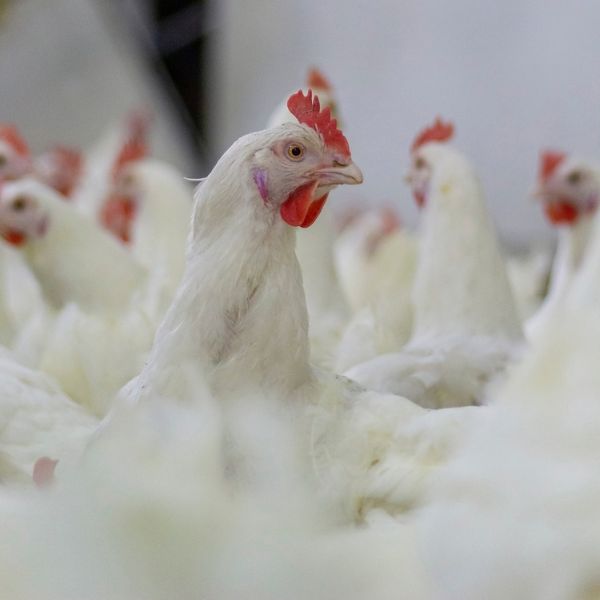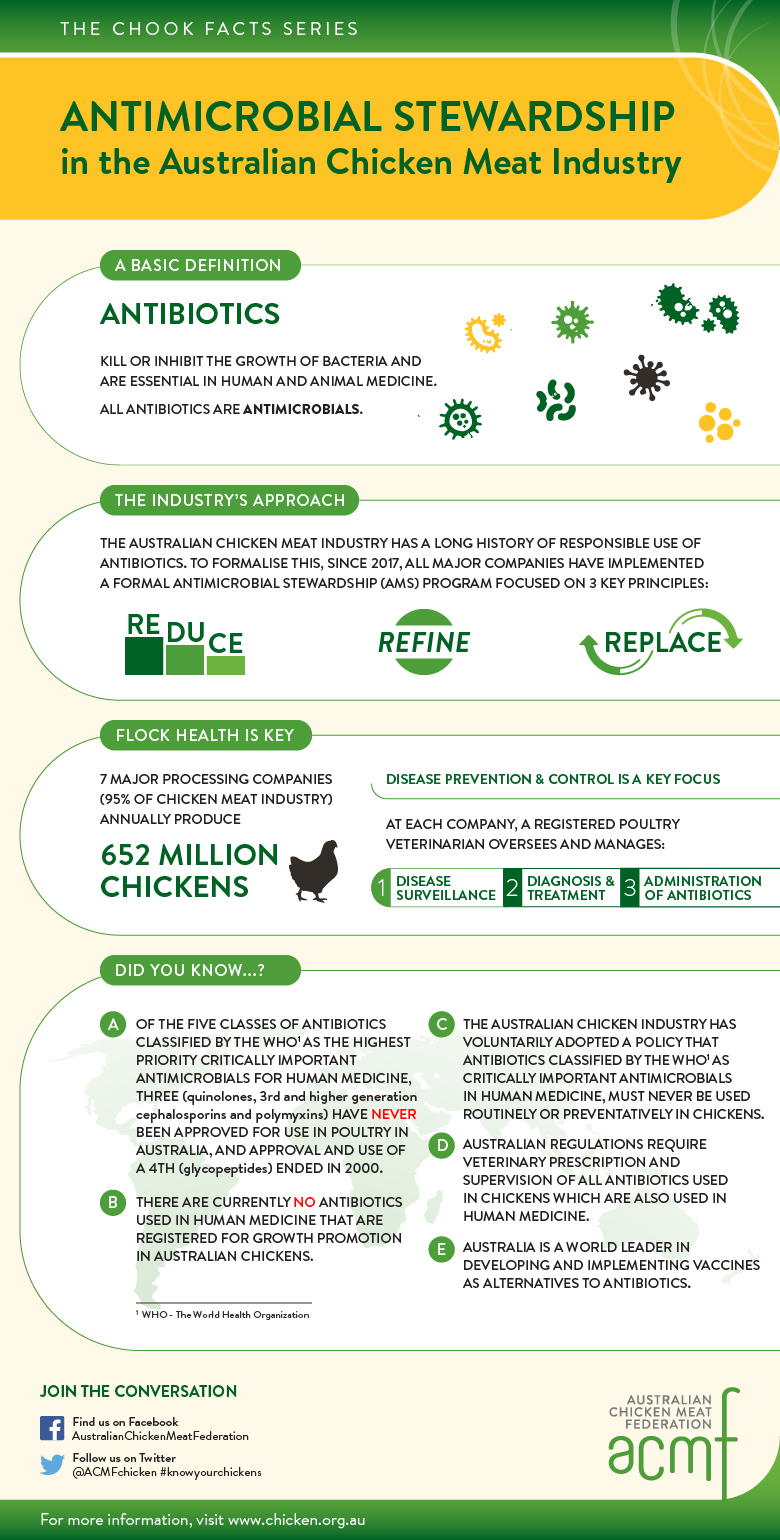Animal HEALTH
Farmers and chicken companies are committed to ensuring the chickens in their care are free from disease and as healthy as possible. Disease prevention and control is managed through effective biosecurity practices, alongside careful animal husbandry practices applied by experienced and knowledgeable farmers, with the support and guidance of specialist poultry vets.
To effectively keep chickens healthy and manage the disease, poultry veterinarians utilise a variety of tools. These tools include preventative measures, such as farm hygiene and vaccines, where they are available, but can include antibiotic/antimicrobial treatment where there is no other viable or effective solution. Not treating sick birds would compromise their welfare, and potentially allow them to suffer. Only medicines assessed and approved by the national regulator of veterinary products (the APVMA) are used.
Effective biosecurity practices are also vital to ensure chickens remain free of disease. Australia’s geographic isolation from the rest of the world and strict quarantine arrangements have assisted in keeping most serious poultry diseases, such as Avian Influenza, out of our flocks, but constant vigilance is important to maintain Australia’s favourable flock health status. This is also the reason that Australia has strict controls on the importation of raw chicken meat into Australia.

Does Australian chicken contain antibiotics?
Antibiotics that have been determined by the Australian Strategic and Technical Advisory Group on AMR (ASTAG) as highly important, or by the World Health Organisation (WHO) as critically important for use in human medicine, are either never used or NOT used routinely in meat chicken production in Australia.
In addition, most antibiotics classified by the WHO as the highest priority for human health are not registered for use in poultry in Australia so are not used at all, and they never have been. No antibiotics classified by ASTAG as highly important in human medicine have been used for at least the past two years.
Is there antimicrobial resistance in chicken meats?
Because of the industry’s valuable Antimicrobial Stewardship Program, the Australian chicken meat industry is in an enviable position globally with low levels of AMR and, importantly, low levels of resistance to antibiotics that are priorities for use in human health. This is evidenced by comprehensive, government-funded national surveys.

Why are antibiotics given to chickens?
Even with the best practices, animals can still get sick. That’s why on occasion veterinarians need to prescribe antibiotics. Not treating sick birds and allowing them to suffer would compromise their welfare. Only antibiotics approved by Australia’s regulatory authorities are used, and if used, they must be administered in accordance with strict guidelines so that they do not leave residues.
Have more QUESTIONS?
